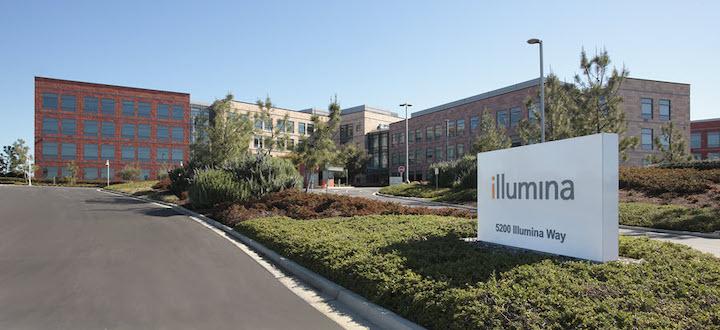Amid Pandemic, Illumina Invests in 'Culture of Care'
The COVID-19 pandemic challenged the company to transform the way its employees and partners build, deliver, and support critical technologies, according to the company’s chief people officer.
Originally published on Wall Street Journal
By Jonathan Pearce, consulting principal, Deloitte Consulting LLP
The health and economic challenges resulting from the COVID-19 pandemic, though daunting, have also created extraordinary opportunities for reinvention. In the life sciences and health care industries in particular, the pressures and expectations driven by the pandemic have, in many cases, accelerated innovation.
Illumina, which makes next-generation gene sequencing tools for life sciences and drug researchers, had a hand in early efforts to combat the pandemic. Its technology enabled scientists to sequence the first genome of the SARS-CoV-2 virus, thereby helping provide a foundation for researchers to develop new vaccines in record time.
The extraordinary circumstances sparked a number of fundamental shifts at Illumina itself, according to Chief People Officer Aimee Hoyt. “It challenged the company to work more closely with suppliers to prevent delays and sustain support for essential services. It also demanded greater collaboration with partners to better understand the virus and track its transmission,” she says.

Aimee Hoyt; Chief People Officer at Illumina
Along the way, the company also transformed how its employees and partners work together to build, deliver, and support Illumina’s technologies. “The operations teams around the globe adjusted to keep our employees safe, protect our product quality, and enable our customers,” Hoyt says.
In this Q&A, Hoyt explains how the company looked out for its people’s safety and other needs while simultaneously fostering an environment in which they could do their best work amid unprecedented circumstances.
How did Illumina balance ongoing operations with employee health and safety concerns to ensure people could continue their work during the pandemic?
Hoyt: The company’s global emergency management team created a response and recovery framework, applying multiple layers of safety measures on campus such as facility modifications, temperature screening and health check-ins, density limits, increased air exchange, workforce physical distancing, and enhanced sanitization.
"In a virtual environment, we sped up our existing plans for digital collaboration transformation and quickly rolled out tools to support it.”
— Aimee Hoyt, chief people officer, Illumina
In doing so, our company’s “culture of care” served as a guidepost. This foundation enabled us to provide an immediate level of support to our employees at the onset of the pandemic, while also allowing us to quickly adapt to their changing needs and unique circumstances. For instance, we provided a “COVID Care” cash payment to help address our employees’ unanticipated financial needs. We also increased emergency backup childcare allowances and offered up to 30 days of paid leave to employees for emotionally significant events.
In the face of early pandemic lockdowns and ongoing disruptions to business as usual, how did the company create a new vision for work and keep employees engaged?
As a global company, Illumina has always been video-first, regularly holding video conference calls across locations, which helped our employees to work and collaborate remotely. Our all-staff company meeting, typically held monthly—with the CEO visiting a different site each quarter—became virtual and was increased to twice a month for more than a year to keep our employees informed and engaged.
In a virtual environment, we sped up our existing plans for digital collaboration transformation and quickly rolled out tools to support it. This has been key to helping keep our employees connected and engaged during these remote working times. Some tools are providing ideation and idea-boarding capabilities that will significantly change the way we work, create, and develop new products and systems going forward.
Our leaders are also keeping a closer eye on employee engagement. We increased our semiannual survey to quarterly and started providing a variety of listening platforms, such as a weekly forum with the company’s chief medical officer and dedicated internal channels for COVID-19 support and updates. It’s difficult to provide a one-size-fits-all solution, but we thought hard about what we could do to help the most people, and we relied on our flexibility to provide additional or different resources where needed. According to our employee surveys, over the past year, 89% were satisfied with the company’s response to the pandemic, and 81% believed the company would emerge stronger afterward.
How are these efforts helping Illumina employees to pursue and achieve critical work outcomes?
Our technology is now powering scientists and researchers in more than 10,000 labs across 115 countries in the fight against COVID-19, and our gene sequencing is an important tool in fighting current and future biological threats.
None of this would have been possible without the talent we have here at Illumina and our commitment to a culture that fosters innovative and breakthrough technology. Moreover, it’s not only the future-of-work tools that can enable ongoing innovation but also continued investment in a culture of care. Those who lean into the human and technology challenges in the days ahead are best positioned to emerge stronger.
This article originally appeared in Deloitte Insights in: CIO Journal from The Wall Street Journal on November 29, 2021. The Wall Street Journal News Department was not involved in the creation of this content.
Disclaimer and Copyright This publication contains general information only and Deloitte is not, by means of this publication, rendering accounting, business, financial, investment, legal, tax, or other professional advice or services. This publication is not a substitute for such professional advice or services, nor should it be used as a basis for any decision or action that may affect your business. Before making any decision or taking any action that may affect your business, you should consult a qualified professional advisor.Deloitte shall not be responsible for any loss sustained by any person who relies on this publication.Deloitte refers to one or more of Deloitte Touche Tohmatsu Limited, a UK private company limited by guarantee (“DTTL”), its network of member firms, and their related entities. DTTL and each of its member firms are legally separate and independent entities. DTTL (also referred to as “Deloitte Global”) does not provide services to clients. In the United States, Deloitte refers to one or more of the US member firms of DTTL, their related entities that operate using the “Deloitte” name in the United States and their respective affiliates. Certain services may not be available to attest clients under the rules and regulations of public accounting. Please see www.deloitte.com/about to learn more about our global network of member firms.Copyright © 2021 Deloitte Development LLC. All rights reserved.


